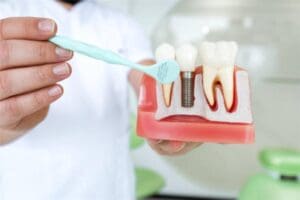Taking care of your teeth and gums is a key part of maintaining overall health. One of the best ways to achieve optimal oral health is by keeping up with regular dental cleaning sessions. Many people wonder how often they should schedule their cleanings, but the answer can vary depending on a few factors. In this blog, we’ll break down why dental cleaning frequency matters, what you can expect during a cleaning, and how routine dental visits contribute to better gum health and a brighter smile.
Regular dental cleanings are essential for good oral hygiene and preventing common problems like plaque buildup and gum disease. You may also be familiar with the term “professional cleaning” when it comes to dental visits, but do you know how often you need one to keep your teeth in top shape? Whether you are just starting to think about your dental hygiene schedule or looking to refresh your routine, this guide will provide you with all the information you need to maintain a healthy mouth.
The Importance of Routine Dental Visits
Going to the dentist regularly isn’t just about having your teeth examined or cleaned. It is a crucial part of a dental hygiene schedule that ensures your teeth and gums stay in their best possible condition. Your dentist can perform oral exams to detect problems like cavities, gum disease, and other dental issues before they become major problems. A visit to the dentist allows them to carry out procedures such as plaque removal, which helps prevent tooth decay and gum disease.
A routine dental visit typically includes more than just a basic cleaning. During the appointment, your dentist or dental hygienist will remove buildup that cannot be cleaned at home, assess your gum health, and provide helpful advice on brushing and flossing. The frequency of these visits is crucial for keeping everything in check.

How Often Should You Get a Dental Cleaning?
While your dental hygiene schedule might be unique to your needs, most dentists recommend that you visit the dentist for professional cleaning every six months. This is the most common dental cleaning frequency for people with healthy teeth and gums. However, if you have certain risk factors, such as a history of gum disease, tobacco use, or high plaque accumulation, your dentist may suggest more frequent cleanings.
Here’s a quick breakdown of general guidelines:
| Condition | Recommended Cleaning Frequency |
| Healthy Teeth and Gums | Every 6 months |
| History of Gum Disease or Plaque Buildup | Every 3-4 months |
| Braces or Appliances | Every 3-6 months |
| Poor Oral Hygiene or Smoking | Every 3-6 months |
These are just general recommendations, and your dentist will tailor the dental cleaning frequency to your specific needs. Remember, these appointments are not just about cleaning; they also give your dentist a chance to perform oral exams to detect any potential issues early on.
Benefits of Regular Dental Cleanings
Maintaining a regular dental cleaning schedule helps with more than just keeping your teeth looking bright. Here are some of the key benefits of regular visits to your dentist:
- Plaque Removal: Over time, plaque can build up on your teeth, even if you brush regularly. Plaque is a sticky film of bacteria that forms on your teeth, and if not removed, it can harden into tartar, which can only be removed by a dentist. Plaque removal during professional cleanings helps prevent cavities and gum disease.
- Gum Health: Regular cleanings help maintain healthy gums. Gum disease starts with plaque buildup and can lead to serious issues like receding gums, tooth loss, and infection. By staying on top of cleanings, you’re helping prevent gum disease from advancing.
- Better Breath: Consistent cleanings can also help eliminate bad breath caused by bacteria buildup in the mouth. It’s not only about freshening your breath, but also about ensuring that your oral health stays in peak condition.
- Bright, White Smile: With plaque removal and tartar buildup being regularly managed, your teeth will be cleaner and brighter. You’ll notice a healthier, more confident smile!
- Preventative Care: Your dentist can spot issues like cavities, enamel erosion, and early signs of gum disease during the cleaning. Catching these problems early means that treatment can be less invasive and more affordable.
Plaque Removal and Gum Health
During your routine cleanings, one of the main goals is to remove plaque and tartar, which can lead to gum irritation and, if left unchecked, more serious issues like gum disease. Plaque removal is a critical step in preventing gum health problems.
If plaque is allowed to stay on your teeth for an extended period, it hardens into tartar, a mineralized substance that cannot be removed by regular brushing. Tartar can irritate your gums, causing them to become swollen, red, and bleed when brushing. This is a sign of early gum disease, which can progress into periodontitis if not addressed. Regular professional cleanings remove plaque and tartar, keeping your gums healthy and preventing more severe issues.
The Role of Oral Exams in Your Dental Cleaning
As part of your routine dental visits, your dentist will perform an oral exam to check for any underlying issues that may not be visible to the naked eye. Oral exams are a key aspect of preventing future dental problems.
During the exam, the dentist will look for signs of tooth decay, gum disease, and oral cancer. Catching problems early can save you from more complicated procedures later on. Oral exams also help your dentist ensure that your teeth are aligned correctly and that there are no issues with your fillings, crowns, or other dental work.
How to Maintain a Healthy Dental Hygiene Schedule Between Visits
While professional cleaning is vital, maintaining good dental hygiene at home is equally important. Brushing your teeth at least twice a day with fluoride toothpaste, flossing daily, and using mouthwash are key components of keeping your mouth healthy between visits. It’s also essential to keep a consistent dental hygiene schedule, meaning that you don’t skip out on brushing or flossing just because you’re not due for a cleaning.
Diet plays a role in oral health too. Eating a balanced diet rich in fruits, vegetables, and dairy products can help keep your teeth and gums in top condition. Limiting sugary snacks and drinks will also prevent plaque buildup and tooth decay.
Contact Us Today to Schedule Your Dental Cleaning!
In conclusion, your dental cleaning frequency will depend on your specific needs, but regular visits every six months are a great starting point for most people. These visits not only help with plaque removal and maintaining good gum health, but they also allow your dentist to perform important oral exams to catch any potential issues early.
If it’s been a while since your last cleaning or if you’re unsure about your dental hygiene schedule, we invite you to reach out to us. At Hamilton Dental Group, we’re here to help you maintain a healthy and confident smile. Contact us today to schedule your next professional cleaning and make your dental health a priority!
Frequently Asked Questions (FAQs)
- How often should I get a dental cleaning?
Most people should get a dental cleaning every six months. However, if you have specific dental issues like gum disease, tobacco use, or heavy plaque buildup, your dentist may recommend more frequent cleanings, such as every 3-4 months - What happens during a professional dental cleaning?
During a professional cleaning, your dentist or hygienist will remove plaque and tartar from your teeth using special tools. They’ll also polish your teeth and check for signs of gum disease, cavities, or other dental issues. - Can I clean my teeth well enough at home, or do I still need professional cleanings?
While brushing and flossing at home are essential, they can’t remove all plaque and tartar. Professional cleanings are necessary to thoroughly clean your teeth, remove stubborn plaque, and check for early signs of dental issues that you might miss. - What is the difference between regular brushing and professional cleaning?
Regular brushing helps remove food particles and surface plaque, but it can’t remove hardened tartar that builds up over time. A professional cleaning removes tartar and plaque from hard-to-reach areas, preventing decay and gum disease. - Is dental cleaning painful?
Dental cleanings are typically not painful, though you may feel some discomfort if you have sensitive gums or a lot of plaque buildup. If you’re worried about discomfort, talk to your dentist before your appointment, and they can take steps to make the process more comfortable. - How can I maintain good gum health between dental cleanings?
To maintain gum health, brush twice a day with fluoride toothpaste, floss daily, and visit your dentist regularly for checkups and cleanings. Avoid smoking and limit sugary snacks to reduce the risk of plaque buildup and gum disease.

